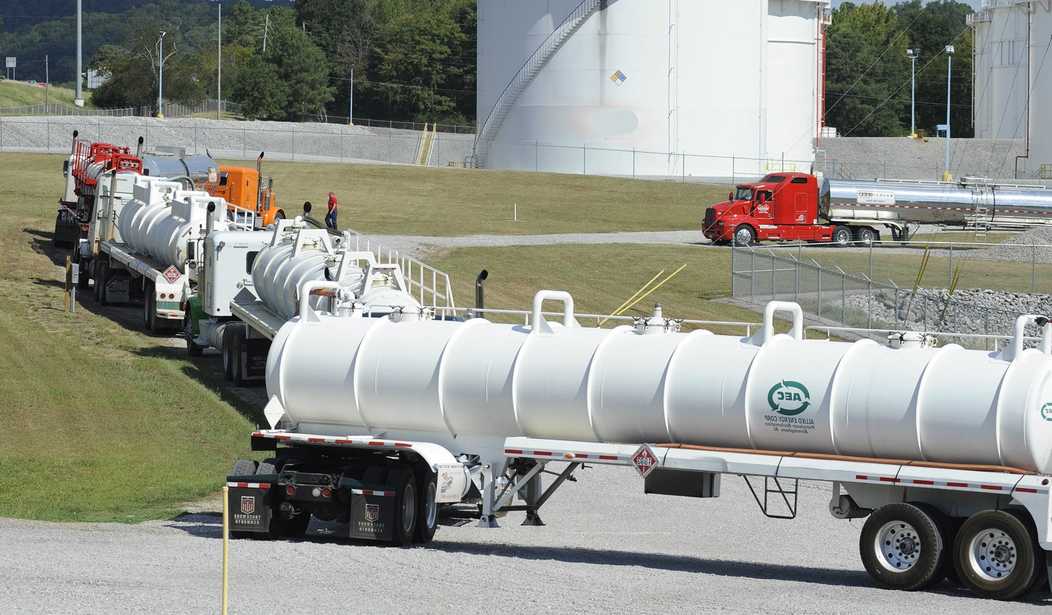Lower fuel prices have made summer especially nice for drivers all over the country. But folks throughout the Southeast can say goodbye to low gas prices – at least for the time being. In fact, some folks in the Deep South are seeing flashbacks to the ’70s, with shortages and outages at the pump, thanks to a pipeline rupture in Shelby County, in central Alabama.
Colonial Pipeline, the company that operate the broken pipeline, initially estimated that 225,000 gallons of gasoline spilled, but estimates range as high as 338,000 gallons. This particular pipeline runs from New York City to Houston and normally transports upwards of 1.3 million gallons every day.
Needless to say, the ruptured pipeline has created waves throughout the South. From AL.com:
The pipeline operator, Colonial Pipeline, released the following information Thursday afternoon:
“Based on current projections and consultations with industry partners, parts of Georgia, Alabama, Tennessee, North Carolina and South Carolina will be the first markets to be impacted by any potential disruption in supply.”
“Colonial has briefed officials in these states and will continue to provide timely information to the public so that they can plan accordingly.”
Governor Nathan Deal declared a state of emergency for Georgia on Tuesday, and Alabama governor Robert Bentley and North Carolina governor Pat McCrory did the same for their states on Thursday.
All three states’ emergency declarations allow fuel truck drivers to exceed maximum hourly limits in order to get gasoline to the stations most affected by the incident. Additionally, Colonial Pipeline is transporting fuel from its second pipeline to certain parts of the region, and a tanker is hauling gasoline to New York harbor to help relieve the pressure on northeastern states.
By the end of the week, southerners began to feel the effects. In my hometown of Covington, Georgia, I filled up for $1.79 a gallon on Wednesday, and the same station’s price had risen to $2.39 for a gallon of regular unleaded on Friday. By Saturday morning, some stations around town had run out of gas, their signs blank and their parking lots resembling ghost towns.
Fortunately, the environmental impact from the spill has been minimal. From The Guardian:
…experts say the line’s owner, Colonial Pipeline, was extraordinarily lucky: the spill happened 500ft from the retention pond for a mining company, and all the fuel flowed into it. That spared the Cahaba river system, one of the most biologically diverse spots in the country, prized by scientists for its concentration of endangered species.
“Yeah,” said James Pinkney, a spokesman for the Environmental Protection Agency (EPA). He gave a wry laugh. “You really couldn’t have planned it any better than this. There are no homes nearby, and it’s fully contained. It’s so fortunate.”
The fuel could have flowed all the way to Mobile Bay on the gulf coast, bringing destruction for hundreds of miles. “Along the way it would have impacted all the wildlife living in it and drinking from it,” said Myra Crawford, executive director at Cahaba Riverkeeper, an outfit that monitors the ecological integrity of the watershed. “And plants like the Cahaba lilies – this is one of the only remaining sites where they are found. It could have been so destructive.”
Instead, she said, environmental workers have only found a few animals killed by exposure to the fuel. “A few raccoons,” she said. “It’s absolutely minimal. A miracle.”
The EPA has installed temporary dams downstream in case some of the gasoline escapes the retention pond, but the agency does not expect any further environmental impact beyond what has already occurred.
Some of the fuel may still be usable, and Colonial Pipeline has crews working around the clock to restore normal service as quickly as possible. Until then, southerners may have to get used to higher prices and outages at the gas pump.









Join the conversation as a VIP Member